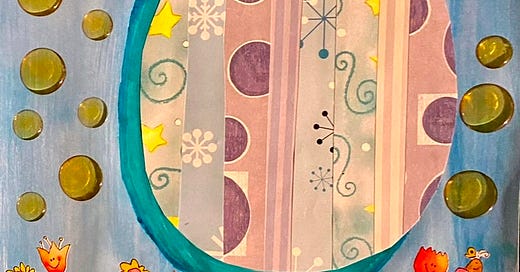I wasn’t sure what I would post in this Sunday slot but my hospital reflection reminded me of how well God cares for me in ways I do not expect. It is never a big monumental thing and could be easily missed if I wasn’t paying attention. I never doubt but that it is God giving me a glimmer of hope.
Scott had a Gastroenterology (GI)* appointment on Thursday. We have waited a month for this appointment. I had been told that they would begin treating his Hepatitis B. I told a friend that I would probably cry if that didn’t happen. And I did. Not that there wasn’t a good reason and that there isn’t now hope that it could happen, but just because I am exhausted—and sad.
Honestly, our family has been very “medically-fortunate” until the past few years. I realized that my doctor/hospital paradigm was that you go get help and then you get better. Aside from controlling his nausea, that is not the case and possibly cannot be the case without major intervention—like a liver transplant. So, I cried and it did feel like the patient advocate was even more dedicated to helping us after that. It could be that I became more receptive to her help, but I am not sure.
The glimmers are the tears, something I have never been able to control very well. I am not sure why we think they should be controlled, but it can be inconvenient. Tears are often the exact emotional release I need. Many who are impacted by trauma cannot cry, so I am fortunate. Shaming the tears of a child is harmful because they are intended to be a non-verbal plea for help.
“Humans are the only mammals known to produce tears in response to emotional states, such as joy or grief. Secretion of emotional tears may also serve a biological function by excreting stress-inducing hormones built up through times of emotional distress [17] and a form of social signaling, such as eliciting help and support from those around you.” (Source)
Yes, my tears were definitely a non-verbal plea for help, but tears have other purposes and their chemical makeup is different depending on that purpose.
“Tears are made up of water, electrolytes, proteins, lipids, and mucins that form layers on the surface of the eyes [16]. The compositions vary significantly in different tear types (basal [lubricate the eye], reflex, and emotional). Emotional tears contain higher protein content. Therefore, they are more viscous, sticky to the skin, and take longer to roll down the face [18]. On the contrary, reflex tears are more dilute to help wash out any irritants to your eyes from foreign particles or vapors. They contain more antimicrobial compounds, such as lysozyme and defensin peptides, to prevent infections [19]. We found that the levels of some anti-bacterial metabolites, such as 24-epibrassinolide [20], were higher in reflex tears than in the other tear types.” (Source)
There is also a difference in tears that are shed by those who are experiencing depression—and tears of joy or grief have different chemical makeups. The discussion of this in the article is complicated, but “in summary, the secretion of either positive or negative emotional tears involves different biological activities.” (Source) In other words, the chemical response in the body is not limited to the tears.
I can always think more clearly after a good cry. Scott knows this. In the hospital, he told the doctor, “Give her a minute.” He, like most men, finds crying so much more difficult. As a culture, we are much more likely to shame little boys for their tears, but both men and women are impacted. This made the researcher’s quest more complicated. The sample of 12 who successfully cried only included one male subject—point made.
“The main limitation of this study is the small sample size. Although 50 participants were recruited, only 12 (24%) successfully completed the emotional tear collection process, probably because an adult person crying in front of a collector is rather embarrassing and difficult.” (Source)
Undoubtedly God understood the chemical composition of tears my body needed in that office. Our bodies need us to cry—in grief and in joy. I was glad to comply. Just as “Jesus wept” so can I. (Note: Tears or crying are mentioned over 500 times in the Bible. This is a good summary.)
You have seen me tossing and turning through the night. You have collected all my tears and preserved them in your bottle! You have recorded every one in your book.
Psalm 56:8
He will wipe away every tear from their eyes, and death shall be no more, neither shall there be mourning, nor crying, nor pain anymore, for the former things have passed away.”
Revelation 21:4
Those who sow in tears shall reap with shouts of joy!
Psalm 126:5
For the Lamb in the midst of the throne will be their shepherd, and he will guide them to springs of living water, and God will wipe away every tear from their eyes.”
Revelation 7:17
Side Note: The older I get, the younger the doctors appear—sometimes I look up what it took for them to gain the necessary expertise and how patient they must have to be explaining something to someone like me who lacks any comprehension of the situation—beyond Google. “A Gastroenterologist must first complete a three-year Internal Medicine residency and is then eligible for additional specialized training (fellowship) in Gastroenterology. This fellowship is generally 2-3 years long so by the time Gastroenterologists have completed their training, they have had 5-6 years of additional specialized education following medical school.” (Source)




